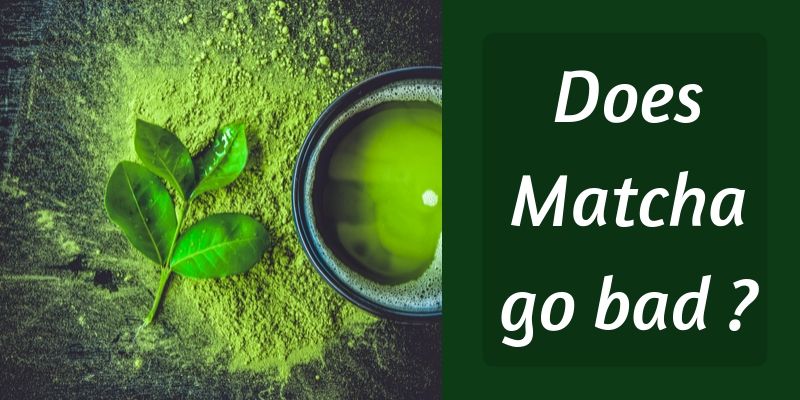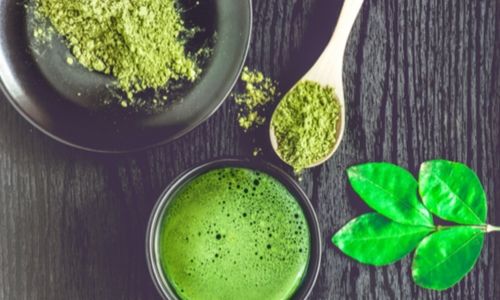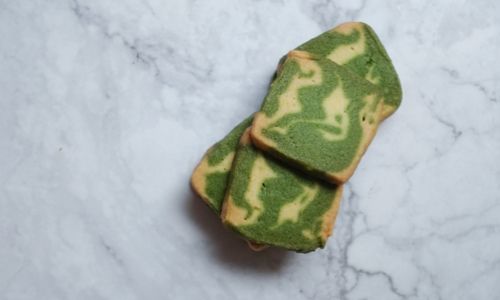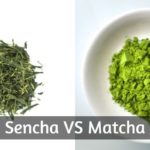So many people have fallen in love with Matcha that we now see a surge in its popularity. This also means a lot of questions, and some of them don't have an answer just yet.
Knowing when or if your Matcha has gone bad or lost its properties can be useful, but there seems to be very little info on it. I did some digging around and forum treading, including the actual sites of Matcha producers. Here's what I've found.
Table of Contents
So does Matcha go bad ?
Matcha loses its flavor after 12 months, even if unopened. Opened Matcha can last up to 4 weeks, and it will lose color, flavor, and degrade in quality after that.
It doesn't spoil in the traditional sense, it just becomes bland and loses all flavor. It's still safe to use, but it's best to bake with it because there won't be much of a flavor left.
What you'll notice when your Matcha has gone off is that it lost its beautiful color, and the flavor will be more bitter. If you've got a batch of culinary grade (lower grade) Matcha and it's lost all its kick there's no real point to keeping it.
Premium and ceremonial grade still have a shot at being useful though, keep reading to find out.
For now, let's see how long you can keep Matcha, on average, so you know what to do with the tea you already own.
Average Matcha shelf life
Since Matcha is such a delicate tea, and has such a complex production method, it stands to reason it would lose its potency quite fast.
From the moment the leaves are ground and become the green powder we all know, it can last up to a year, but usually less.
This is with airtight packaging and kept at room temperature.
Now, there's something we need to clear up. Normally Matcha only really lasts for a few months, under half a year. The same way green tea only lasts up to a year.
But the fact that lots of Matcha gets exported, plus the fact that it's never really 'expired' but rather has lost some of its properties, the expiry date you'll see on Matcha packs is 12-24 months from the production date (1).
While this is not untrue, it's also not a good indicator. What you should be looking for is the production date, and try to get a pack as close to it as possible. This is also true for coffee beans, by the way.
So for example if you find a ''produced on July 1st 2019'' pack, and it's already February 13th 2020, that Matcha will not be as bright or potent as if you opened it in August or September 2019.
However most Matcha is nitro flushed and stored in a fridge or freezer after production, unopened and this slows down the degradation process.
If you were to try keeping your Matcha in the fridge or freezer, only do so with unopened, sealed packs, and keep them away from strong smells.
Always remember to give it 24 hours to come up to room temp before opening, otherwise condensation will form and ruin the tea.
And if you've already opened the pack, do not store it in the fridge. Some companies might claim this is alright, but there's going to be some moisture in the pack after you open it and condensation will form.
Especially if you use it regularly.
As for how long opened Matcha lasts, you should consume it in 3-4 weeks. The powdered form makes it very susceptible to the flavor evaporating and quick oxidation.
Signs your Matcha isn't fresh or top quality
You'll only know your Matcha has lost its freshness once you open the pack or container. There's a few ways you can tell it's gone off, and I'll lay them out here.
1. It lost its bight green color, or has a yellow tinge
Probably Matcha's most distinctive feature, the bright green color is mandatory for any good Matcha. Once that's gone though, you can be pretty sure your tea powder has lost its punch.
You see, the bright green is due to the low to non-existent oxidation level. Once the bright green becomes dull, it's a sign it's starting to oxidize and lose flavor.
If your Matcha has a yellowish tinge it's pretty far gone and there's not much you can do with it anymore.
Do keep in mind that low grades like culinary/food grade/restaurant Matcha will have a duller shade of green to begin with, so don't be alarmed if they're not screaming green at you.
2. It became more bitter, or is too bitter to begin with
Another interesting feature of Matcha, or at least a good Matcha, is that it's not going to be bitter. While the flavor will be noticeable and very tasty (think deep, rich umami with a sweet aftertaste) it won't be bitter.
If your Matcha looks a little iffy but you're not sure, taste it. If it wasn't bitter at all and is now a little bitter then it's definitely changed its properties.
The good part is it's still useful, even if less than before. I'll get to that in a minute.
Again, keep in mind that culinary grade Matcha is a little bitter to begin with, but also has a stronger flavor.
3. The smell is gone, you can't detect anything
While Matcha does not smell very strongly, it still has a bit of a scent of its own. This means you should detect a fain grassy smell, with a little sweet undertone.
It won't be strong, but it'll be there.
If the smell is gone, or very very faint that is a sign the Matcha is starting to lose its properties. It's not all the way gone, but it's definitely losing flavor and antioxidants.
This means you should finish it, or use it in another manner.
Expired or 'bad' Matcha becomes lower grade
A word before I explain the transition into lower grade Matcha.
This is a delicate tea, and an expensive one, yes. But there is no need to save it for later, or for a special occasion.
First because Matcha is meant to be enjoyed as an everyday drink, both in order to get the health benefits and also to get used to the flavor quickly.
Chances are you won't fall in love with its taste straight away, and this is actually normal since most folks are used to sweet tea, or at least not this kind of flavor.
So only drinking Matcha every now and then won't help you get used to it. Drinking it every day will help you learn to love the subtle notes in your tea.
Second, since this tea is so delicate and loses its oomph fairly quick, there's no reason to wait around to drink it. You can use your Matcha in smoothies if you like, not just to brew regular Matcha and this will also make sure you get your fix every day.
While it's true that Matcha that has gone off isn't really the best, there's no reason to throw it away if it's not completely ruined.
You can use stale Matcha in baking or recipes that require some heat. If you were to use good, ceremonial Matcha to bake a sponge cake the flavor wouldn't be as strong and it would be a waste of a perfect Matcha.
Another thing would happen: high grade Matcha is more sensitive and delicate, meaning that your cake or baked goods might change color faster, or turn a little bitter.
Using a high grade Matcha that lost some of its qualities - effectively becoming culinary grade - is alright though. Your baking won't change color very much, and the taste might be more pronounced.
You can also use it in ice cream, Matcha lattes, smoothies, but added in a larger amount since you're trying to make the flavor stronger. That, or add very little sweetener to keep the Matcha prominent.
Again, remember that this stale Matcha still needs to have some color or flavor to it. If it's yellowish or overly bitter, throw it out.
Conclusion
Matcha's expiration date and general shelf life aren't very well explained usually, so I think a good post on it was necessary. I hope I managed to clear things up a little.
And about using stale Matcha for baking, do take some care and taste it first. If it tastes weird or not right, don't use it. After all, it's better to get yourself a fresh batch of Matcha than to trudge on with an expired one.
If you want to know more about coffee or tea, feel free to check the related articles below. Who knows what else you might find ?







